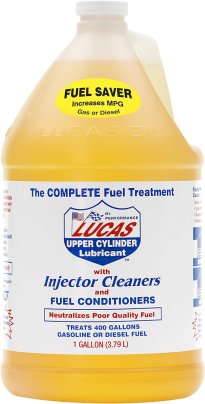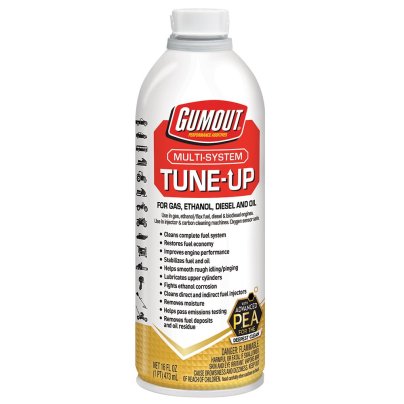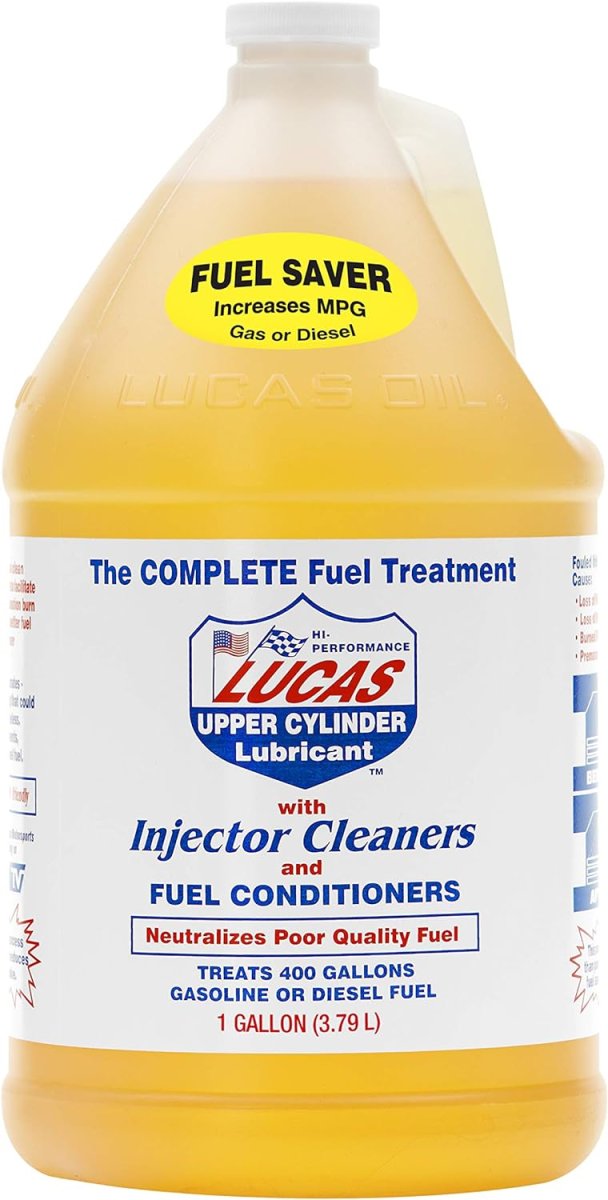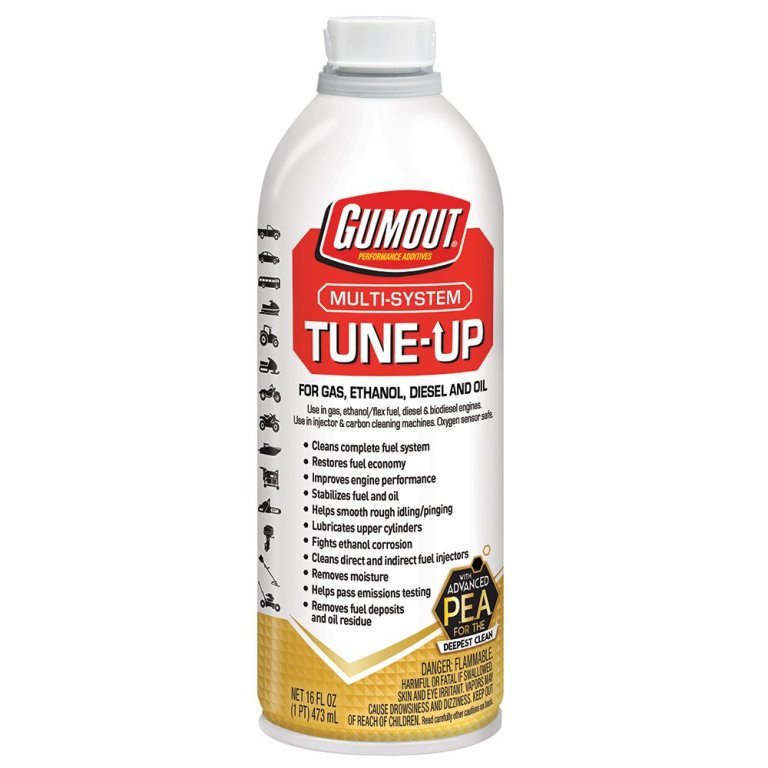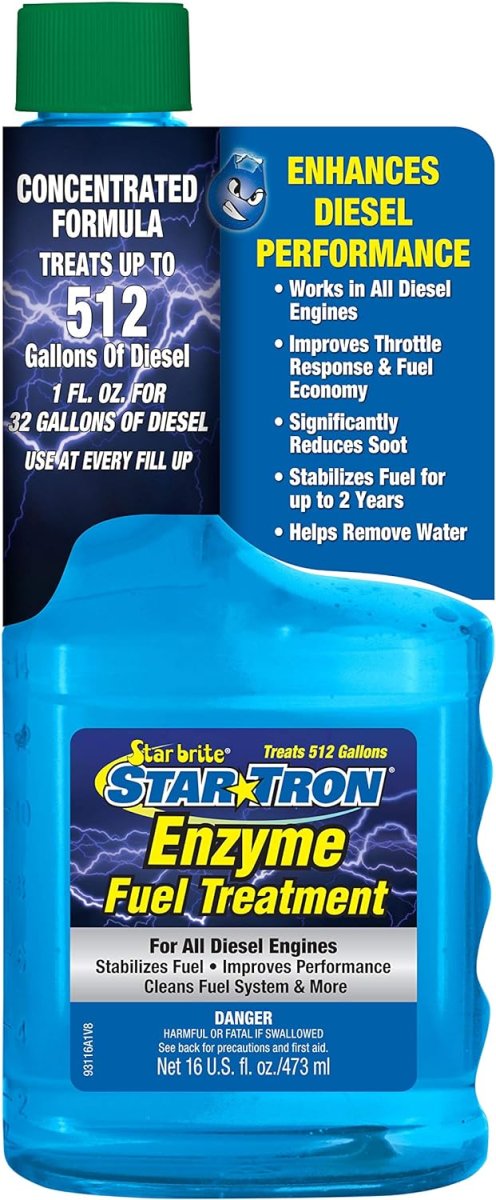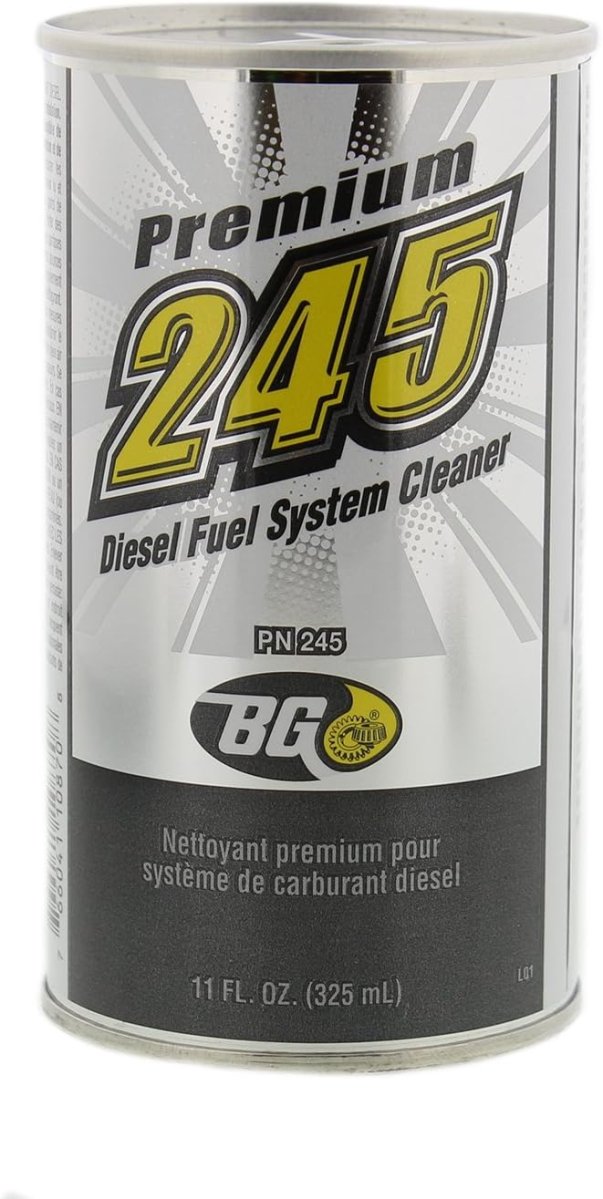We may earn revenue from the products available on this page and participate in affiliate programs. Learn more ›

Like any fuel-injected engine, diesel engines rely on fuel injectors to, well, inject fuel into the engine. Over time, deposits can form on those injectors, causing all sorts of issues with performance and economy. While many argue running nothing but clean fuel is a way to avoid the issue altogether, things happen, and you might wind up with gunked-up injectors anyway.
Diesel injector cleaners are a simple additive you add to the fuel tank to help address the buildup. This is an easy yet essential part of preventative maintenance, and the quality of these cleaners dramatically impacts its effectiveness. So, to save you some legwork, we’ve tracked down the best diesel injector cleaners available on the market today.
Summary List
- Best Overall: Lucas Oil Fuel Treatment
- Best Value: Gumout Multi-System Tune-Up
- Honorable Mention: Sea Foam Motor Treatment
- Most Versatile: Star Brite Star Tron Enzyme Fuel Treatment Concentrate
- Best for Deep Cleaning: BG Premium Diesel Fuel System Cleaner
Our Methodology
We narrowed down this list of top-choice diesel fuel injector cleaners by balancing out price, review, features, and ease of use. Whichever possessed the best mix got on the list, and then we rated them from there. You can’t really go wrong with any of them, but some target more specific issues that your car might be experiencing. With that, let’s discuss what’s best for your spark-plug-less powerplant.
Best Diesel Injector Cleaners: Reviews & Recommendations
Best Overall: Lucas Oil Fuel Treatment
Pros
- Solid value
- Ensures a clean burn
- Cleans inside the cylinder as well
Cons
- Extra accessories needed to pour into tank
- Extra care must be taken while pouring it in as it’ll quickly destroy automotive paint
- Care must be taken while measuring out the right amount to add
Designed to work on all types of engines, the Lucas LUC10013 Fuel Treatment works to improve conditions and prevent further damage. Coming with enough to treat 400 gallons of diesel, it works by using hydrophobic chemicals and additives to slide the particulate through. The detergent in the formula interacts with corroded parts and debris to clean the vehicle from the inside out. It results in a clean burn by enabling a smooth flow of the diesel and regulating the sulfur in the contents. When used regularly, this conditioner can keep your engine working at the top of its game.
The drawback to this entry is the gallon jug. While it’s good to have on hand, the excess quantity makes it more difficult to add to your engine than others. That, paired with how harsh it is on paint, makes it inherently risky to use.
Best Value: Gumout Multi-System Tune-Up
Pros
- Works powerfully on diesel engines
- Helps limit buildup on pistons and valves Improves overall fuel economy
- Restores the proper sulfur content
Cons
- If it spills, this conditioner can leave stains
- Can be tricky to control the concentration
The Gumout Multi-System Tune-Up cleaner is an affordable product that works on your diesel injectors and the entire fuel system. It’s also suitable for gas, ethanol, and biodiesel engines. The product works with just one treatment on a 21-gallon diesel tank (one ounce per gallon of fuel in both 2- and 4-cycle engines). It cleans the fuel injectors, cylinder heads, the combustion chamber, piston tops, and intake valves.
The product’s composition is made up of antioxidants, corrosion inhibitors, and cleaning agents that prevent future carbon build-up in your engine. It also features polyetheramine (PEA) that effectively eliminates carbon deposits from the fuel system. The fluid stabilizes the fuel for two years, improves your vehicle’s fuel economy, and fights ethanol and water corrosion.
The main problem with this product is that the mouth of the bottle may not fit on a fuel tank, which makes application difficult. You would have to use a funnel to avoid spilling the content on the surrounding area. Moreover, the manufacturer could improve on the design and packaging of the bottle as it often comes with external damages to the can.
Honorable Mention: Sea Foam Motor Treatment
Pros
- Works with all motor oil types including conventional
- Powerfully removes deposits by altering their viscosity
- Improves cylinder performance
Cons
- Includes de-icer gel that might be unnecessary for some applications
- Hard to pour into gas tank
- Hard to find in single bottles online
The Sea Foam Motor Treatment graces our list as a professional-grade cleaner that cleans injectors, carb jets, motors, passageways, intake pistons, and valves in both diesel and gas engines. This fuel system cleaner enhances the engine’s overall performance, promotes better fuel economy, and better fuel system operation. It also improves your vehicle’s performance with faster throttle response and smoother idle.
This formula is tried and trued, but they still have to get the bottle worked out. It’s difficult to pour into a gas tank. It’s worth noting that it also uses a de-icer that’s not necessary, and it’s hard to find it in single bottles online.
Most Versatile: Star Brite Star Tron Enzyme Fuel Treatment Concentrate
Pros
- Cleans not only the injectors but the engine’s valves as well
- Doubles as a fuel stabilizer for vehicle storage
- Good price
Cons
- Dispenses slowly, taking a while to add to fuel
- Cheap containers might crack and leak over time in storage
The Star Tron brand of fuel injector cleaner is available in several different sized containers. If you need only a little amount of the liquid (8 ounces), you’re covered. You can go for a larger amount (1 gallon) that will last you quite a long time. The injector allows your engine to start more easily, smoothly, and quickly once applied. It also helps reduce emission and carbon buildup from burners, injectors, and exhaust components.
The setback to this entry is that the cheap plastic used for the bottles tends to crack over time. It’s also a relatively poor design that takes longer than usual to dispense the contents.
Best for Deep Cleaning: BG Premium Diesel Fuel System Cleaner
Pros
- Helps remedy cold start issues and hesitation
- Includes strong cleaning agents
- Great pricee
Cons
- Some users report the funnel not included in packaging
- Higher in price than most competitors
This diesel injector cleaner is formulated to clean out the whole fuel injection setup in the vehicle, with enough supply to mix well with a single tank of gas. Once you’ve used the cleaner and driven your vehicle for a while, it becomes better able to cold start and burns fuel more efficiently. The resulting cleaner combustion both reduces your carbon output and can save you at the pump. Meant to address carbon deposits, it lubricates and removes particulate from the injectors.
Though this does include a funnel, it seems to go missing before reaching many customers. It’s also more expensive than most options, which will drive many consumers to something else.
Our Verdict on the Best Diesel Injector Cleaners
After careful consideration, we’ve picked the Lucas LUC10013 Fuel Treatment as the winner of this roundup. Powerful, affordable, and long-lasting, it’s a solid choice. Looking to save a bit more? Consider the Gumout Multi-System Tune-Up as a one-shot treatment.
FAQs
A: Yes, injector cleaner works on diesel engines, provided it is compatible with that system. Make sure it specifies that you can use the formula on diesel. If you rely on biodiesel, make sure it tackles ethanol issues. Many cleaners work on all types of engines, but if you use the wrong one, it can cause problems.
A: It depends on the situation. Some recommend using it every 1500 miles, others use it every tank-full, some argue it isn’t necessary at all, as long as you’re running quality fuel. Your best bet is to do the research for your specific engine, what the common solutions are, and which you ultimately think is best.
A: While most fuel injector cleaners indicate that they won’t cause harm if you add too much, exercise caution. All the containers state the proper concentration. Look at how much diesel it’s meant to treat and stick to the instructions. This way, you don’t cause damage through the detergent build-up, undoing all the work the cleaner could have otherwise done.
A: It’s a common misconception that the results are immediate. The cleaner gets rid of water within a few minutes of driving, but getting rid of the deposits takes more than that. After a week of regular driving, the cleaner will take its full effect. Take note of when you use it and the impact on fuel mileage at the beginning and after a week. If you notice a difference, the treatment was successful.
A: A few of the signs include an engine that won’t start or gives you trouble before starting, a decreased MPG which points to lowered fuel economy, increased hydrocarbon emissions, and non-firing cylinders. Also, if you open the vehicle’s hood and notice some traces of diesel on the spark plugs, then you know that you have a clogged fuel injector.
